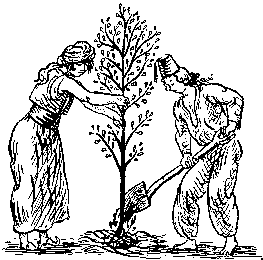When I read Pascal’s personal experiences and his philosophical
works, a strange question is ringing in my mind: China has a lot of great
thinkers, but nearly all of them stay at the stage of ideology and
Confucianism. In a word, they don’t become influential philosophers in the
world. Why does it happen?
Pascal has some similarities with Zhuangzi, who is the
famous thinker in China from BC. 4th to BC. 3rd century. Even
though they lived in totally different historical stage or cultural atmosphere,
they had lots of similar thoughts on the world, lives and changes. One of those
similarities is that, Zhuangzi thought all the things in the world are
intangible, cosmos’s operation cannot be handle by people, real and illusion
cannot be told, and he supported peripateticism for the attitude towards life
and learning. However, why didn’t these great thinkers in China become
influential towards the world, or made substantial contributions to the human
beings?
I have
following concepts after the learning of Pascal:
l Philosophy and Natural Science
Through
the achievements of Pascal, I find that philosophy is the conclusion of all
kinds of subjects and knowledge, which is obviously shown in Pascal’s
philosophical experiences. As one of the great philosopher, Pascal doesn’t just
stay in the aspect of thought and ideology, but his philosophical achievements
are based on learning, analyzing and even creating natural science. Therefore,
philosophy becomes the development or conclusion of other subjects.
When
we look around the cultural environment in ancient China, there was a huge lack
of creative natural science atmosphere.
Pascal’s
father is a tax officer in the city, which needs strong capacity in math. He
has a very profound influence in Pascal’s childhood, and the math capacity becomes
the foundation for his remarkable philosophical achievements. Pascal’s
contributions to hydrostatics, particularly his experimentations with the
barometer and his theoretical work on the equilibrium of fluids, were made
public one year after his death. The development of probability theory is often
considered to be the most significant contributions in the history of
mathematics.
l Faith & Religion
At the age of 23, Pascal started to read the works by
Augustine, and he began to touch faith and religion. At first, he thought that
god is a conception in philosophy, as time passed by, he found that when people
felt sad for their guilty, philosophy could not comfort them, but for the
people who had faith in god can be comforted even if they were lack of knowledge.
Pascal wrote in his works, the cognition towards god
is from the sense of human beings, which is the confidence towards Christian
but not logic. Human beings can’t prove the existence of god by their ration,
but only through Christian.
I find that in the history of human beings, there are
a lot of great philosophers who have strong belief towards religion. They build
their lives on the solid Christian belief stone, but not on the floppy sand of philosophical
theory.
However, in the long history of ancient China,
religion didn’t become the social ideology all the time. The emperor and
political order is the only ideology in this country, and the high authority always
suppresses any kind of religion group and their related actions. Therefore,
China always lacks the soil of religion and belief, which impedes their
research of philosophy.
l Thinking
Pascal once said, Man is a reed, the feeblest thing in
nature, but he is a reed that thinks. As a great philosopher, Pascal paid high
attention in thinking, which he thought was the most important factor
constructing human beings. This is same when we look back at Descartes, who
said the famous motto: I Think Therefore I am. Ever since Renaissance, thinking
in philosophy is the permanent theme in Western culture. However, when we look
at thinking in Ancient China even nowadays China society, all the people are
hurrying up for their livings---- high salary, high social status, career,
raising up children, and so on. Material, utility and restlessness make Chinese
people lack the energy for deep thinking. In my perspective of view, it’s another
way showing the lack of spirit and faith.
l Basic Education
When I learn more about Great French Philosophers, I
find that there is philosophical gene flowing in French people’s blood and
companying their whole lives. From the beginning of primary school, French
children start accepting philosophy education. They have the particular textbook
of philosophy, and all the other subjects have the penetration of philosophy.
As the matter of fact, the philosophy education in France schools is not aimed
to cultivating philosophers, but for bringing up excellent French Residents.









